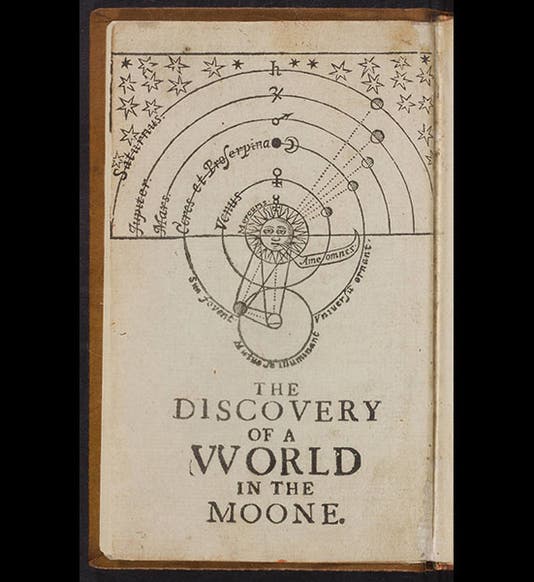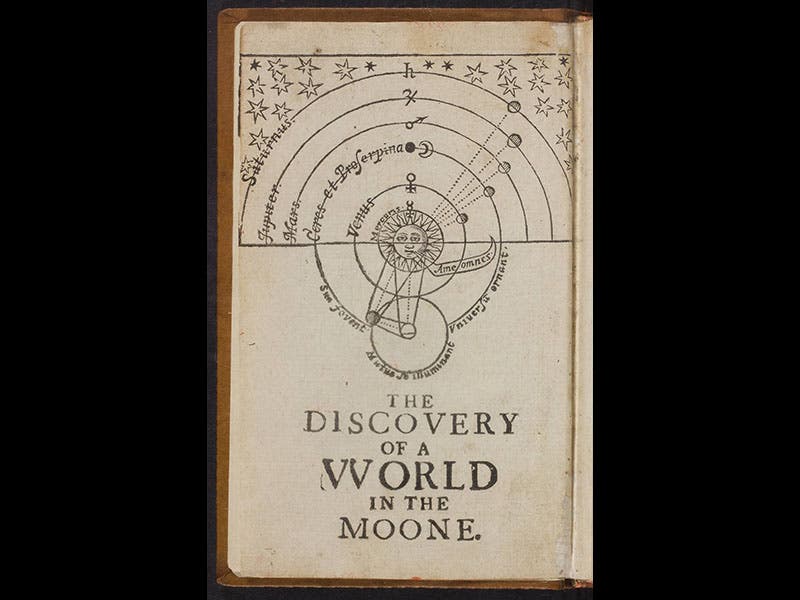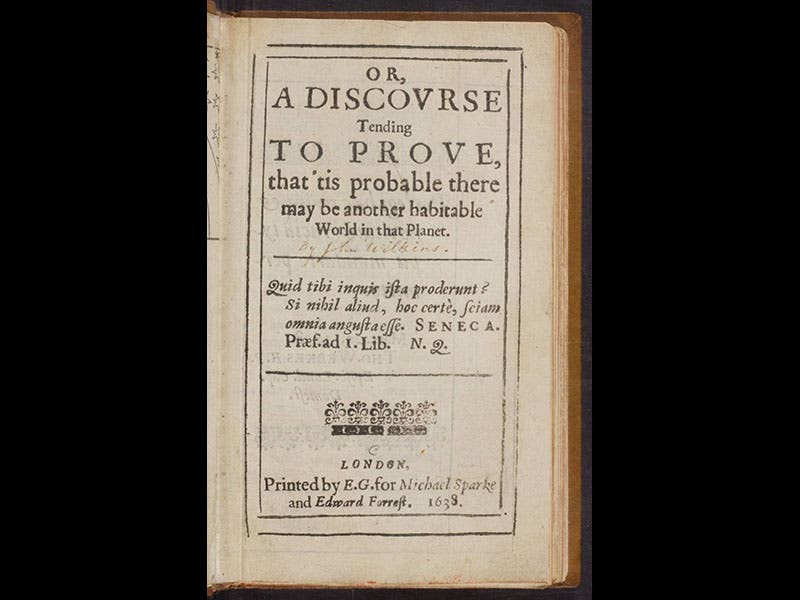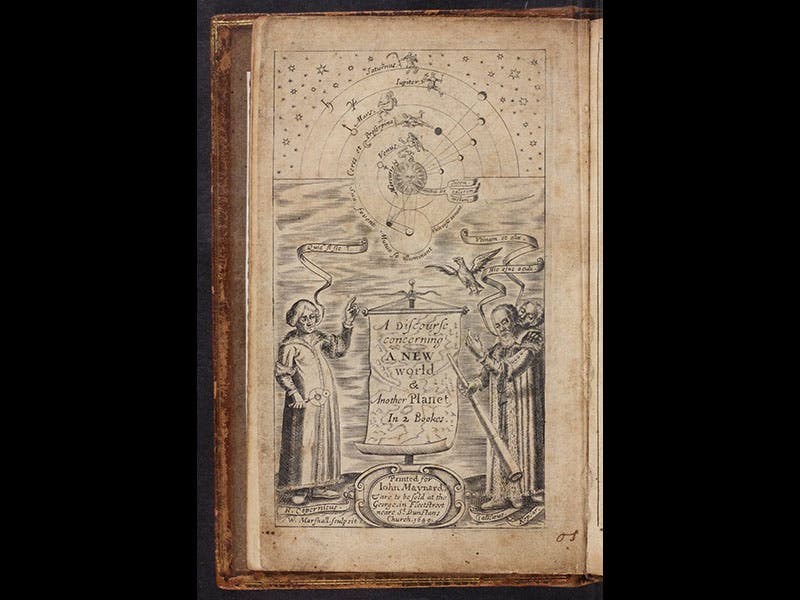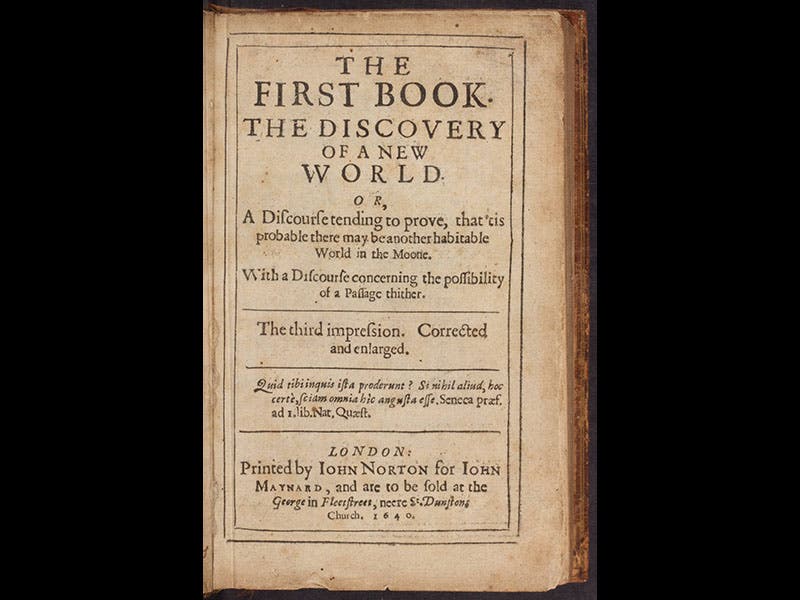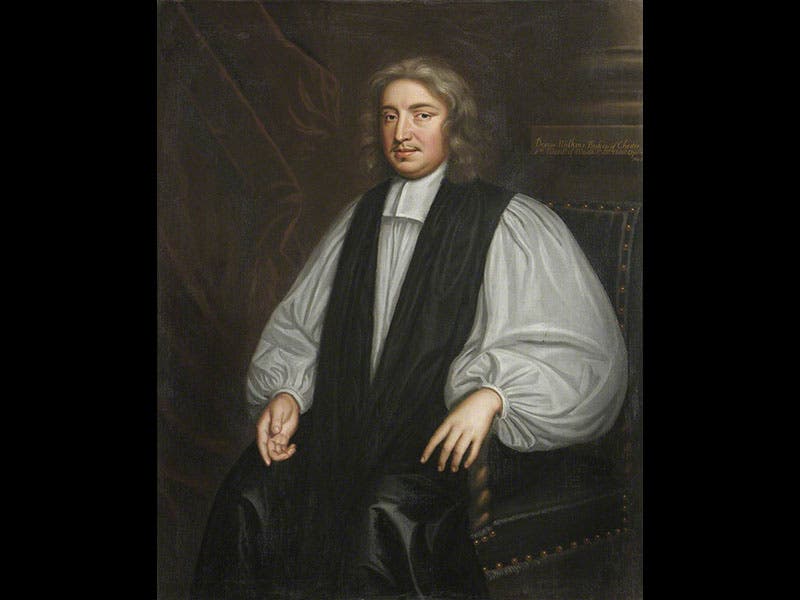Scientist of the Day - John Wilkins
John Wilkins, an English natural philosopher, was born Feb. 14, 1614. Wilkins was one of the founding members of the Royal Society of London and author of a variety of books on such topics as mathematical magic and philosophical languages. Today we feature his first treatise, Discovery of a New World in the Moone (1638), which was an early English defense of Galileo's argument that the Moon is just like the Earth--rocky, cratered, and covered with mountains and oceans. In a 1640 re-issue of his book, Wilkins added a long chapter on how we might get to the Moon to check it out. He considered proposals made by others: elevation by spirits (Kepler's idea) or strong birds (suggested by Francis Godwin), and opted instead for mechanical flight. He argued that it was very likely that "heaviness" was a feature of the earth's surface only, and that if you could get up about 20 miles, the tendency to fall would disappear. From there the air would be pure (untainted by the Fall in the Garden) and we might not even have to eat, appetite being another byproduct of the human fallen condition. So all we need are some kind of mechanical wings that could raise us above our natural weightiness. Wilkins didn’t solve the problem, but he did inspire friends like Robert Hooke to study the structure of insect wings to try to determine the secrets of unmanned flight.
We have both the 1638 and 1640 editions (as well as several later editions) of Wilkins’ Discovery in our History of Science Collection. The two early editions are bibliographically odd because the illustrated title pages (first and third images) have different titles than the typographic title pages (second and fourth images), and the title changes from the 1638 to the 1640 edition. Since there are four different titles given, one might be forgiven for thinking that Wilkins wrote four treatises on the Moon, when in fact he wrote only one that he subsequently enlarged.
The portrait of Wilkins, by John Greenhill, hangs in Wadham College, Oxford (fifth image).
Dr. William B. Ashworth, Jr., Consultant for the History of Science, Linda Hall Library and Associate Professor, Department of History, University of Missouri-Kansas City. Comments or corrections are welcome; please direct to ashworthw@umkc.edu.

